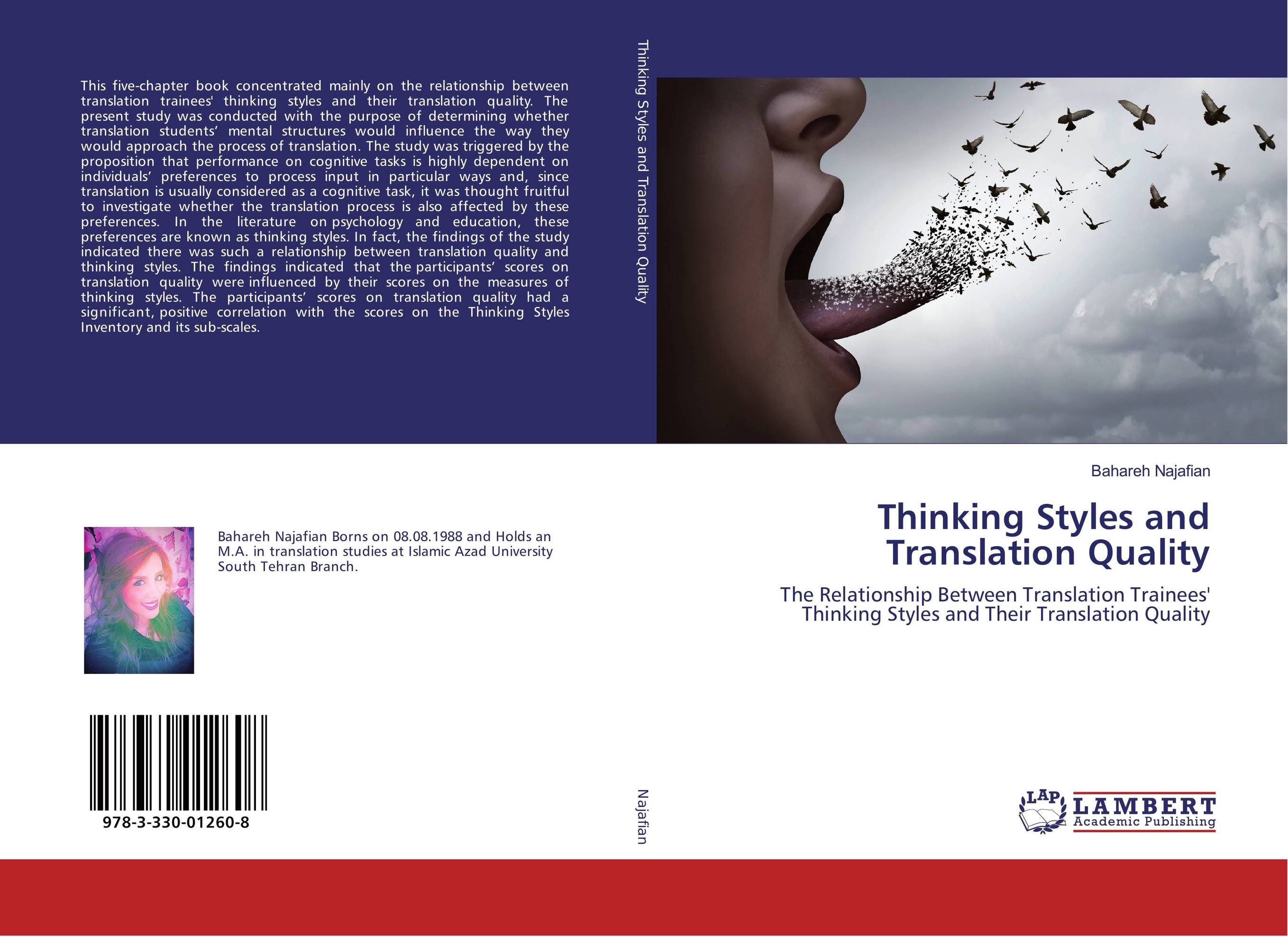| Поиск по каталогу |
|
(строгое соответствие)
|
- Профессиональная
- Научно-популярная
- Художественная
- Публицистика
- Детская
- Искусство
- Хобби, семья, дом
- Спорт
- Путеводители
- Блокноты, тетради, открытки
Thinking Styles and Translation Quality. The Relationship Between Translation Trainees' Thinking Styles and Their Translation Quality

В наличии
| Местонахождение: Алматы | Состояние экземпляра: новый |

Бумажная
версия
версия
Автор: Bahareh Najafian
ISBN: 9783330012608
Год издания: 2016
Формат книги: 60×90/16 (145×215 мм)
Количество страниц: 100
Издательство: LAP LAMBERT Academic Publishing
Цена: 29469 тг
Положить в корзину
| Способы доставки в город Алматы * комплектация (срок до отгрузки) не более 2 рабочих дней |
| Самовывоз из города Алматы (пункты самовывоза партнёра CDEK) |
| Курьерская доставка CDEK из города Москва |
| Доставка Почтой России из города Москва |
Аннотация: This five-chapter book concentrated mainly on the relationship between translation trainees' thinking styles and their translation quality. The present study was conducted with the purpose of determining whether translation students’ mental structures would influence the way they would approach the process of translation. The study was triggered by the proposition that performance on cognitive tasks is highly dependent on individuals’ preferences to process input in particular ways and, since translation is usually considered as a cognitive task, it was thought fruitful to investigate whether the translation process is also affected by these preferences. In the literature on psychology and education, these preferences are known as thinking styles. In fact, the findings of the study indicated there was such a relationship between translation quality and thinking styles. The findings indicated that the participants’ scores on translation quality were influenced by their scores on the measures of thinking styles. The participants’ scores on translation quality had a significant, positive correlation with the scores on the Thinking Styles Inventory and its sub-scales.
Ключевые слова: Quality Assessment, Thinking styles, translation, translation quality



